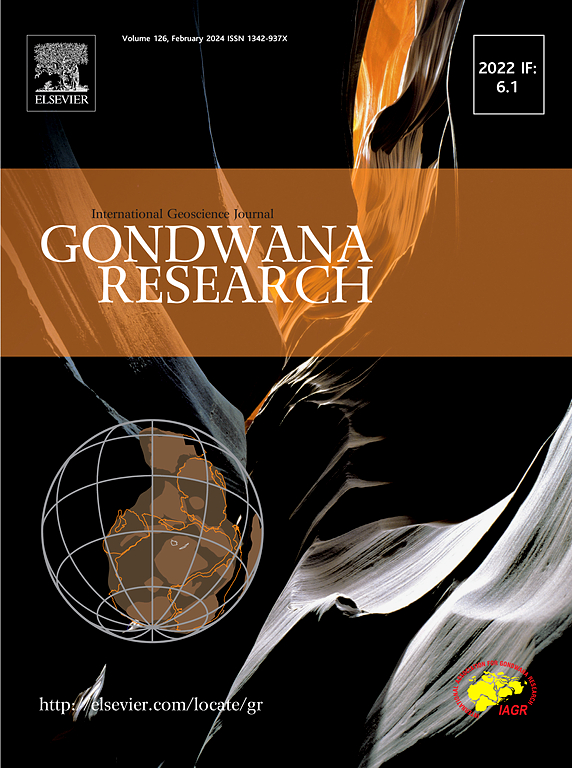Environmental impact of technological innovation under energy transition in Europe: Do energy exporters play a significant role?
IF 7.2
1区 地球科学
Q1 GEOSCIENCES, MULTIDISCIPLINARY
引用次数: 0
Abstract
The transition towards a sustainable energy system is critical in mitigating climate change and reducing the environmental impact of energy production and consumption. Technological innovation is pivotal in enabling this transition, offering solutions that can enhance energy efficiency, harness renewable sources, and minimize emissions. This study employed a dataset of 29 countries from 1995 to 2022 to investigate how technological innovation and renewable energy consumption influence environmental pollution. The study further classified the countries as energy importers and exporters to account for heterogeneity. To address potential endogeneity concerns, the study utilized the system-generalized method of moments (sys-GMM) as the primary estimator, with the Driscoll-Kraay estimator complementing a robust test. From the main European panel, technological innovation and renewable energy consumption significantly enhance the quality of the environment. Additionally, the interaction effect between technological innovation and trade openness improves the quality of the environment. Likewise, among energy importers and exporters in Europe, technological innovation and renewable energy consumption significantly enhance the quality of the environment. This study presents intriguing findings that warrant the attention of policymakers, as it sheds light on notable benefits of technical innovation and contributes considerably to the ongoing debate around energy transition and environmental sustainability.

欧洲能源转型下技术创新的环境影响:能源出口国是否扮演重要角色?
向可持续能源系统过渡对于减缓气候变化和减少能源生产和消费对环境的影响至关重要。技术创新是实现这一转型的关键,它提供了能够提高能源效率、利用可再生能源和最大限度减少排放的解决方案。本研究采用1995年至2022年29个国家的数据集,考察技术创新和可再生能源消费对环境污染的影响。该研究进一步将这些国家划分为能源进口国和出口国,以解释异质性。为了解决潜在的内生性问题,该研究利用系统广义矩量方法(sys-GMM)作为主要估计量,并用Driscoll-Kraay估计量补充鲁棒性测试。从主要的欧洲面板来看,技术创新和可再生能源的消耗显著提升了环境质量。此外,技术创新与贸易开放之间的互动效应提高了环境质量。同样,在欧洲的能源进口国和出口国中,技术革新和可再生能源消费大大提高了环境质量。这项研究提出了值得政策制定者关注的有趣发现,因为它揭示了技术创新的显著好处,并为围绕能源转型和环境可持续性的持续辩论做出了重大贡献。
本文章由计算机程序翻译,如有差异,请以英文原文为准。
求助全文
约1分钟内获得全文
求助全文
来源期刊

Gondwana Research
地学-地球科学综合
CiteScore
12.90
自引率
6.60%
发文量
298
审稿时长
65 days
期刊介绍:
Gondwana Research (GR) is an International Journal aimed to promote high quality research publications on all topics related to solid Earth, particularly with reference to the origin and evolution of continents, continental assemblies and their resources. GR is an "all earth science" journal with no restrictions on geological time, terrane or theme and covers a wide spectrum of topics in geosciences such as geology, geomorphology, palaeontology, structure, petrology, geochemistry, stable isotopes, geochronology, economic geology, exploration geology, engineering geology, geophysics, and environmental geology among other themes, and provides an appropriate forum to integrate studies from different disciplines and different terrains. In addition to regular articles and thematic issues, the journal invites high profile state-of-the-art reviews on thrust area topics for its column, ''GR FOCUS''. Focus articles include short biographies and photographs of the authors. Short articles (within ten printed pages) for rapid publication reporting important discoveries or innovative models of global interest will be considered under the category ''GR LETTERS''.
 求助内容:
求助内容: 应助结果提醒方式:
应助结果提醒方式:


